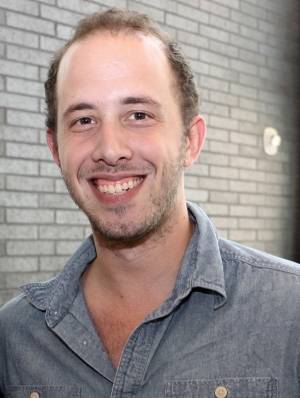NORMAN, OKLA. – Daniel Becker, an assistant professor of biology in the University of Oklahoma College of Arts and Sciences, has been named a 2021 Scialog Fellow for Mitigating Zoonotic Threats. The program, sponsored by the Research Corporation for Science Advancement and the U.S. Department of Agriculture, will bring together a multidisciplinary group of early-career researchers to address the global threat to human health from animal-borne infectious diseases.
“The Mitigating Zoonotic Threats Scialog focuses on the animal origins of human diseases and how we can leverage expertise from different fields against future pandemics,” said Becker. “I’m an ecologist who uses field studies and computational tools to study how these human pathogens spread in their wildlife hosts; the factors that make these infections more common in some populations, species or times of the year; and how we can better predict from where, when and what we expect these pathogens to jump into humans.”
“I’m excited by the broad range of expertise on infectious disease included in this Scialog and look forward to developing some compelling next steps to improve the rapid detection and management of human pathogens in wildlife,” he added.
RCSA program director Andrew Feig said the aim of the Scialog, which is a fusion of “science and dialog,” is to bring together academic and USDA scientists, guided by a group of senior facilitators, to gain “a deeper understanding of the interactions between animals, people, pathogens and their environments…expand our ability to rapidly detect emerging pathogens and to quickly develop and deploy new countermeasures.”
Scialog Fellows will discuss challenges and gaps in current knowledge, build community around visionary goals and form teams to propose cutting-edge collaborative research projects with the potential for high-impact results.
“The College of Arts and Sciences congratulates Daniel Becker on being named a Scialog Fellow for Mitigating Zoonotic Threats, an award for which he is most deserving,” said David Wrobel, dean of the OU College of Arts and Sciences.
“Dr. Becker’s innovative research aims to identify the ecological and evolutionary factors that determine infectious disease dynamics in reservoir hosts and cross-species transmission,” Wrobel said. “This research, which addresses the global threat to human health from animal-borne infectious diseases, is an example of the centrality of fundamental research to real-world problems and exemplifies the OU research mission with its emphasis on addressing the grand challenges of the 21st century.”


